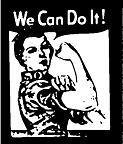home / teaching reading / homeschooling / gifted kids / breastfeeding / crafts |
|
|
"A good education for every child
does not mean the same education for every child. " Please use what works for you and your
child and ignore the rest. Every
child is different. If this
information does not seem to be a good fit for your particular child, then
keep looking and experimenting until you find what works. This Web Page by Pauline
Harding for Art Nurk, hardingpj@yahoo.com |
Resources for Teaching Beginning Readers Libraries Obviously, your public library is theoretically your best resource for books – how can you beat free! However, not all libraries are created equal! It can be worth a once-a-month trip to a better-stocked library, especially now that most libraries allow you to renew on-line. We use our library extensively. We keep a large basket in the living room for the books. Once a week, I go on-line and renew books. My children choose books, but I also choose things I think they might find interesting. We read some, we browse through others; some we don’t touch and just return. My kids always know they can go to the book basket and browse if they need a new book to read. I found that it still pays to put good books in the basket for my 10 and 13 year olds, even though they are choosing a lot of their own books. Don’t assume that just because your child is able to choose their own books, they can’t benefit from your suggestions. Keeping a book log? An easy way is to print out the list of books you’ve borrowed each week before you return them. You can make sure you’ve got all the books that are due before you head out. Jot down each child’s name next to the books they’ve read, and keep these lists in a folder. At the end of the year, you’ve got a complete list of the books you’ve read. My favorite homeschool catalog - these guys carry everything. Get their catalog in print so you can browse and mark it up. Other homeschooling catalogs may also be good resources, even if you are not homeschooling. Local teacher supply stores Look in your yellow pages. These local stores sell supplementary materials for classroom teachers. They might be a good resource for workbooks. It also can be helpful to just browse and get an idea of what can be taught, games you can make at home, etc. Additional Resources Book clubs Pros and cons- In general, I think your money is better spent choosing books that are meaningful for you personally. You can learn about time-honored gems by looking at lists in books or on the Internet. One exception – I joined the Dr. Seuss book club and these books have been read again and again. Go Dog Go, Hop on Pop, Big Dog Little Dog, Are You My Mother, Green Eggs and Ham, etc. Computer games, “educational” toys They can be useful, but be careful. They are not a replacement for reading with mom or dad. They can be expensive for what they teach. They should be a supplement to a reading program, not the program itself. Some of them are really glitzy – I prefer the very simple ones. I would invest in a tape player before any of the battery-toy things. Or take that $40 and spend it at a couple of used book sales – if you’re lucky you’ll end up with 80-160 books! There are a number of free on-line games and such – www.starfall.com is the best I’ve seen for reading, and www.brainpop.com is great for older kids. All-In-One Phonics / Learn to Read Programs In general, most people do not need an expensive phonics program. For most kids, these are unnecessary, especially if you have been reading aloud and playing games all along. Personally, I’ve never used them, preferring to spend my money here and there on different resources. However, if you or your child needs or wants something more formal, these may work for you. I strongly suggest you check the used market before spending a lot of money. Second-Hand sources Library book sales These can be the best source of second-hand children’s books, especially if they are in a wealthy neighborhood. Go early for the best selection. Thrift shops Can be a great source for used books. Find one in a neighborhood where the families donate good books, especially those purchased through Scholastic. Stock up on chapter books like Magic Tree House, Newbery winners, and other classics. Generally not a great source for non-fiction or picture books. Used book stores Good for all kinds of books! Generally speaking, you’ll pay more than at thrift shops or library book sales. Homeschool Group Swaps and Sales Many homeschool groups have annual sales or informal swaps. Let homeschooling friends with older kids know you may be interested in their cast-offs. The swap boards here are a lively market for second-hand homeschooling supplies. Used books – these guys are merging with eBay, which is a shame. Auctions. Check the other sites listed here before you bid, to find the going price of popular items. Searches used book stores across the country and overseas. A good source for more obscure used books, or books from overseas – ask for a deal if you buy several books from the same source. |
